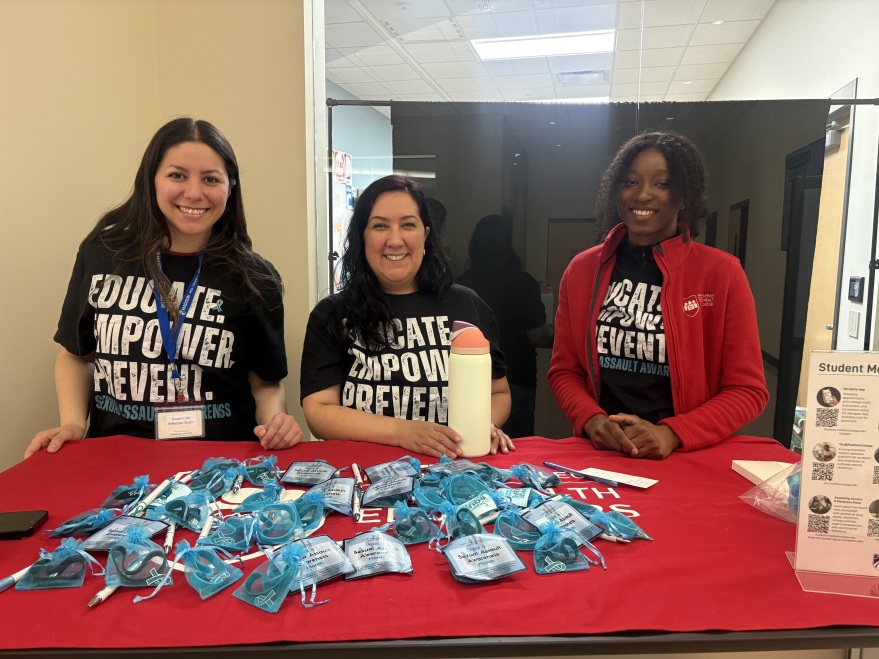Stephanie Land’s new memoir, “Class,” picks up where her first book “Maid” left off. “Maid” inspired a 10-part Netflix series depicting the author’s life as a young single mother living below the poverty line. In “Maid,” she struggles with housing and food insecurity while coping with an abusive relationship and cleaning houses to support herself and her daughter.
“Class” chronicles Land’s life as a student at the University of Montana, desperately trying to fulfill her dream of becoming a writer while juggling classes and working to pay for childcare and rent.
“Class” addresses the challenges of poverty and education: student loans, child care and housing. Land doesn’t shy away from describing her and her daughter’s food insecurity. She rarely eats out and treats Annie’s organic Mac and Cheese as a splurge.
Her hunger is reflected in smaller nuances, always carrying a peanut butter Cliff bar in her backpack and saving it to last the day by taking small pieces of it.
She learned pancakes are a cheap and easy way to eat. She mainly ate yogurt and crackers. Her daughter ate lunch with the free lunch program, and Land often ate whatever her daughter didn’t finish.
When people think about poverty, they think about big items like food and housing. Where Land differentiates as an author is her gift of writing about the hidden details of being poor. For example, she scrambles for money for smaller purchases, like the cost of copying printed essays to share with her classmates.
The reader is given a new perspective on poverty’s unending cycle, judgemental gatekeepers and bureaucratic programs. Land describes obtaining student loans as a labyrinth of red tape and finding child care as continuously challenging.
As the memoir moves through her fourth year at Montana, the chapters alternate between critiquing the system and Land finding plenty of time to party. Admittedly, it was harder for me to sympathize with the author in these chapters.
Land often displays immaturity and makes herself the constant victim. She sees herself as a constant casualty of “the system,” as well as her family, boyfriends, friends, professors and judicial systems. While she fights through tough circumstances many readers haven’t faced, it is hard to empathize with her because of her self-induced situations.
The scenes of her partying or drinking at a bar quickly cut to the chase, where she is sleeping with someone she randomly encountered. The sex scenes distract from her central message, which is a critique of the system.
Land doesn’t hold back any details of her sex life. An NPR interviewer euphemistically called these details “spicy.” These spicy or erotic scenes don’t move the story forward and are unnecessary and graphic.
She sleeps with several men and does this while random men, usually friends, are babysitting her daughter. This doesn’t seem to be the wisest decision. She soon becomes pregnant but can’t name her baby’s father.
Because her story bounces from a picture of a struggling woman tackling education and motherhood to a snapshot of poor choices and promiscuity, “Class” does not reflect the dire circumstances of the many women in America struggling to change their situation. The book is well-written but inconsistent in its messaging.
However, Land’s writing offers other jewels, like descriptive prose and deadpan, if dark, dialogue. Wondering if she can find someone random to drive her to a parenting clinic, Land wonders out loud, “Hi. How are you? Can you drive me to my abortion?” (Ultimately, she decides to keep her child.)
When describing the bedroom she shares with her daughter, she writes, “Cheap shelves made of hollow plastic rods and particleboard were flimsy but did the necessary job of holding bins of miscellaneous tiny plastic shoes and My Little Ponies mixed with naked dolls that were zombie and vampire high school students.”
Her sharp-eyed passages never miss details, allowing readers to immediately imagine Land’s surroundings.
I finished the book by mostly appreciating the parts of this book that addressed the life of a single mom grappling with poverty, education and motherhood.
I wish it had stayed with its original thought-provoking theme of the effects of overlooking and underestimating the poor. Despite the theme not staying the same throughout the book, her writing and wit keep the reader hooked.
I look forward to reading Land’s next book.


























